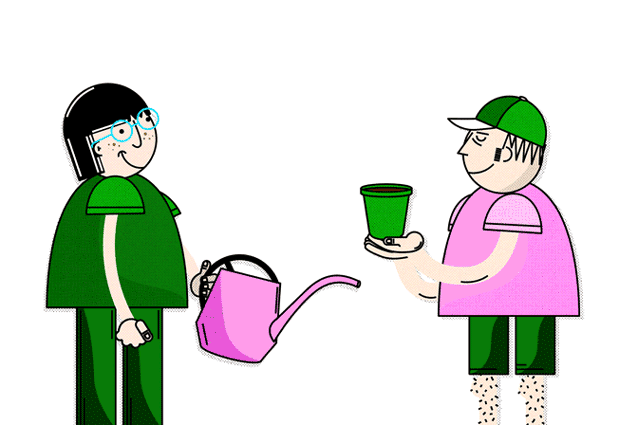If you’re sick, then I’m mad
- Share via
Psychologists would call her husband’s debilitating cold “the precipitating event,” but Carla Ford knew it simply as the last straw.
For the third year in a row, Michael Kinberg was sick during the holidays. On the two previous occasions, Ford provided the kind of tender, loving care to her mate we all would want -- hot bowls of chicken soup, an extra warm blanket and indulgent comments like “You poor dear.”
But this time, when Kinberg, a Los Angeles screenwriter, was under the weather around the Christmas holidays, exit Florence Nightingale. Enter Mommie Dearest. The couple’s preschool-age son needed looking after, a holiday party had to be prepared, a house had to be cleaned and now a spouse had to be cared for. For Ford, it was overwhelming.
“Things had to get done, and I couldn’t do it all myself,” said Ford, an attorney. “I got pretty mad.”
It violates societal norms of compassion to be angry at a sick person, but rare is the modern couple up to their eyeballs in chores, children and life’s daily details who doesn’t experience some degree of irritation and resentment when a temporary illness places a pox upon the house.
With a truly serious medical condition, psychologists say, it’s much easier to deliver sympathy and comfort. The situation is clear and dramatic, and partners routinely rally to their loved one’s side. But in cases where one person in a couple has a cold or flu, it’s far murkier.
The situation can easily prompt a slew of anger and guilt-laden questions: Why can’t they push through this? Don’t they know how much work there is? Why don’t they take better care of themselves? About the only thing clear is how much busier the one still standing is going to be for the next few days.
“When someone goes out of commission, even for a short while, the precarious balance that many of us keep can be upset,” said Norman Epstein, a professor of family studies at the University of Maryland. “The machine breaks down, so to speak, and it just pushes some people over the edge. They get angry.”
Along with the prospect of additional stress, the feeling of being unappreciated can fuel a healthy person’s anger toward a sick partner. Unfortunately, few emotions are as easy to come by around the home as feeling unappreciated, said Thomas Bradbury, a psychology professor with UCLA’s Center for the Everyday Life of Families.
There’s a natural tendency to perceive that we are doing more than our fair share, said Bradbury. After all, we are the ones who experience every moment of sweat and toil we put into the home, while we cannot possibly know everything the other person is contributing -- even if we tried, which we rarely do. The emotional deficit leaves us more vulnerable to losing our tempers, he added.
Some couples interpret a flash of anger at a sick partner as a sign of a doomed relationship, but this is rarely the case, psychologists say. If neglect and abuse are part of a pattern within the relationship, it’s time to seek help, they say.
But anger, whether expressed explicitly or through a chilly mood, is so common in such situations that it’s best to weather the storm. Instead, both parties should plan on talking over any hard feelings when they are feeling better. “[The anger] usually doesn’t have much to do with the relationship itself,” said Barbara Fiese, a psychology professor at Syracuse University who studies the family. “When one person is sick, both [partners] are likely to say things they really don’t mean.”
Ironically, getting mad at a sick partner can actually prolong the illness and make a relapse more likely, say psychologists. Stress has been shown to weaken the immune system. “A partner who is not supportive when you’re ill is certainly not going to help things,” said Frank D. Fincham, the director of the Marital and Family Studies/Personal Relationships Lab at the University of Buffalo. “Both are going to probably feel more guilt and stress -- and that’s not good for either person’s health.”
Just as psychologists recommend that couples avoid taking on provocative topics before bedtime, so too do they urge them to steer clear of arguing when one is sick. Chances are it’s only going to make the situation worse, they say.
But the best advice for the sake of the relationship is to be as charitable as possible.
“It makes better sense to give the partner the benefit of the doubt in all kinds of circumstances, and to interpret events in ways that do not worsen situations,” said Bradbury. “It is these small acts of psychological alchemy that smooth over the rough spots in our relationships.”
These days, Ford is trying to follow that advice and is committed to being a source of comfort to her husband should he fall ill again. But there is one lawyerly exception, she added.
“He can’t get sick during the holidays,” she said. “He just can’t.”
More to Read
Sign up for Essential California
The most important California stories and recommendations in your inbox every morning.
You may occasionally receive promotional content from the Los Angeles Times.













